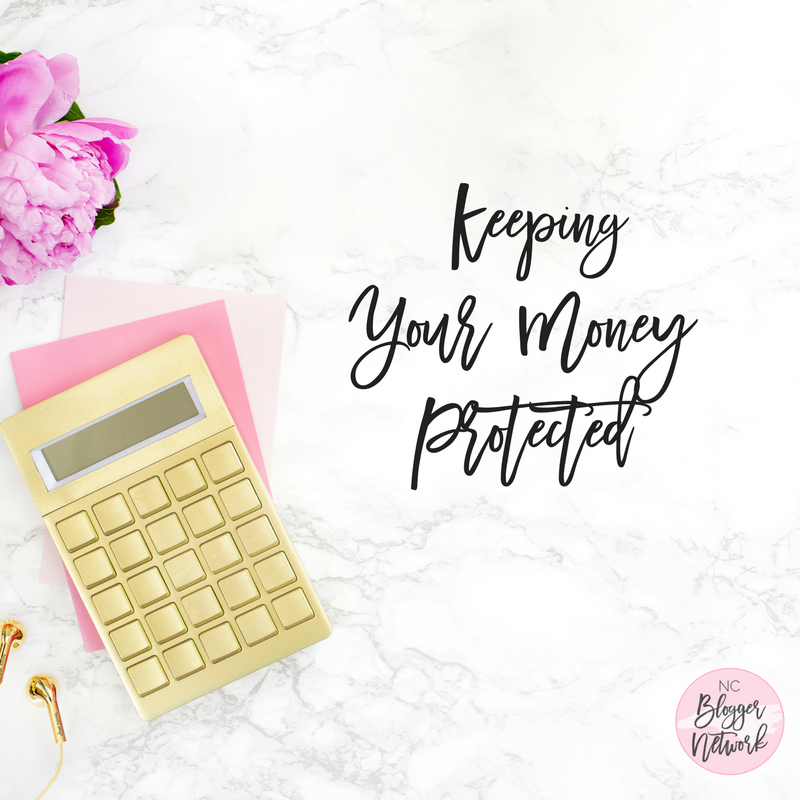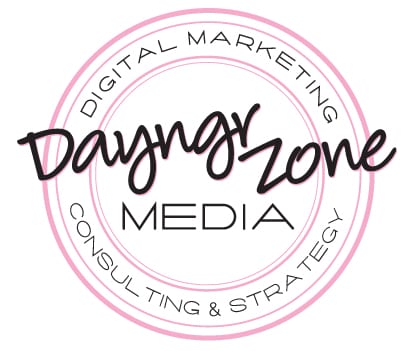 As a trained Certified Public Accountant (CPA), having a blogger’s guide to keeping your money protected is incredibly helpful. The Blog Life University session, Keeping Your Money Protected, by bookkeeper and blogger Iyanna Vaughn was totally in my comfort zone. I can track the revenue coming in and the expenses going out of my blog like a beast. I know the basics that I need to do to setup my business accounts and that I need to keep them separate from my personal. I’m a stickler for keeping receipts and documentation for every blog transaction so I know exactly what it was for and why.
As a trained Certified Public Accountant (CPA), having a blogger’s guide to keeping your money protected is incredibly helpful. The Blog Life University session, Keeping Your Money Protected, by bookkeeper and blogger Iyanna Vaughn was totally in my comfort zone. I can track the revenue coming in and the expenses going out of my blog like a beast. I know the basics that I need to do to setup my business accounts and that I need to keep them separate from my personal. I’m a stickler for keeping receipts and documentation for every blog transaction so I know exactly what it was for and why.
Disclaimer: I received a free virtual ticket to the Blog Life University 2017 Conference as a member of the NC Blogger Network in return for sharing my conference notes and key takeaways. This post contains affiliate links as indicated by an asterisk. Purchases from these links provide a small commission to me at no extra cost to you.
But when it comes to the bigger picture business strategies like how to price my products, and being confident in what to claim as revenue and deductions for my business taxes, there is a lot more gray area. My tax research professor in college said, “The answer to every tax question is…it depends” and I feel like that is so true. Our blogs are all different, we write about different things, we use different tools in different ways to accomplish our goals, what will be a deductible expense for one blogger may not be for another. So talking to an accountant about your specific tax situation is pretty important if you are earning income from your blog.
I say this because there were quite a few instances during Iyanna’s talk when people would ask specific questions. She’d give her opinion on how it should be treated, recommend documenting where your potential revenue and expenses came from, what they were for and how much value you received… and then, you guessed it, talk to your accountant – and she’s totally right. So go ahead, make a big list of all your questions and book an appointment with someone you trust to lead you in the right direction.
Financial Tips for Keeping Your Money Protected
Here are some of Iyanna’s helpful financial tips toward keeping your money protected for your blog and business and:
- Keep your blog bank account separate from your personal bank account. Whether you are a sole proprietor or an LLC, your blog earnings and expenses should not be commingled with your personal funds. Your blog account is not your personal piggy bank.
- Until your blog earns enough money to sustain itself, consider budgeting a certain amount to fund your blog bank account from your personal budget. Become your own “angel investor” but keep the transfers documented.
- Track and document every dollar coming in and out of your blog. Keep blog receipts in a separate folder and add them in as money is spent, don’t wait until the end of the year to go on a needle-in-a-haystack search for your blog expenses. You can grab an income/expense tracker included in my free blog planner. Even if you don’t think you need to include the income/expense on your taxes, keep it all together so you can ask your accountant for more guidance.
- Waveapps is a free accounting software that Iyanna uses and recommends. You can:
- track your income and expenses
- scan receipts with your phone!
- create and send invoices
- in the paid version, you can process credit card transactions, bank payments and handle payroll taxes
- When you see financial reports, revenue should mean all the income received before deducting expenses. After expenses are deducted, the net income is your bottom line earnings and what your taxes are calculated on.
- You can download her freebie for possible tax deductions for your blog here.
- Identify what money mindset blocks you have and figure out how to overcome them (I recommend You are a Badass at Making Money* by Jen Sincero to help with this, it’s FREE with an Audible audiobook trial).
- Tax Jar works with Woocomerce, Shopify, Paypal and Etsy (among others) to calculate and auto file sales tax to appropriate state agencies.
- Besides cost, the difference between a bookkeeper and a Certified Public Accountant (CPA):
- bookkeepers are your right-hand people for your business. They can record financial transactions, help with your budgeted and cash flow projections, help with documentation and provide tax recommendations/issues to discuss with your accountant. They are not licensed CPA’s so their hourly rate will typically be less.
- In the US, CPA’s are licensed by their state-regulated agency. They have specific requirements they must meet to maintain their license. Just because a person is a CPA does not mean they are an expert in tax so make sure you find a tax CPA to answer your questions. Tax CPA’s can provide recommendations on handling your situations and prepare and sign tax returns.
- Note: anyone can use the term accountant, so just because a person is an accountant does not mean they are a licensed CPA. Only active licensed CPA’s can use CPA in their title and business.
- Profit First* by Mike Michalowicz teaches you to pay yourself first when allocating your business revenue. Normally business owners pay themselves after all their expenses are paid but the author suggests paying yourself first and then you know what you have left to spend on expenses. Depending on your revenue, Iyanna says he suggests the following breakdown and order of breaking down your revenue:
- Pay yourself 50% of what you earned = profit first
- Save 15% on your taxes
- Save 5% for retained profit
- Cover your expenses with what is left 30%
- Another tip for keeping your money protected, Iyanna has a pricing calculator that works for determining how much you should charge for services provided. She reverse-engineers how much she wants to earn and how she plans to do it, to come up with the rates to charge her clients. Grab her pricing calculator for services here.
In Closing…
Iyanna did a great job highlighting some important financial issues for your blog and business.I love the idea of the Profit First* book Iyanna highlighted and will be checking that book out to learn more. Finances don’t have to be intimidating or scary. Keeping well-organized documentation is key to helping you, your bookkeeper and/or your CPA figure out the best way to handle your tax situation. Finding knowledgeable and trustworthy support is key as your finances get more complicated as your blog and business grows.
What financial questions do you have? What’s your biggest obstacle when it comes to earning money on your blog and keeping your money protected? Let’s discuss in the comments!


Andrea ’Mohawkmomma’ says
The Profit First principle is incredible! I was so glad to have discovered it in my first year of business in 2016. Thank you for breaking down CPA’s, bookkeeper, and accountants. Great insight, as usual!